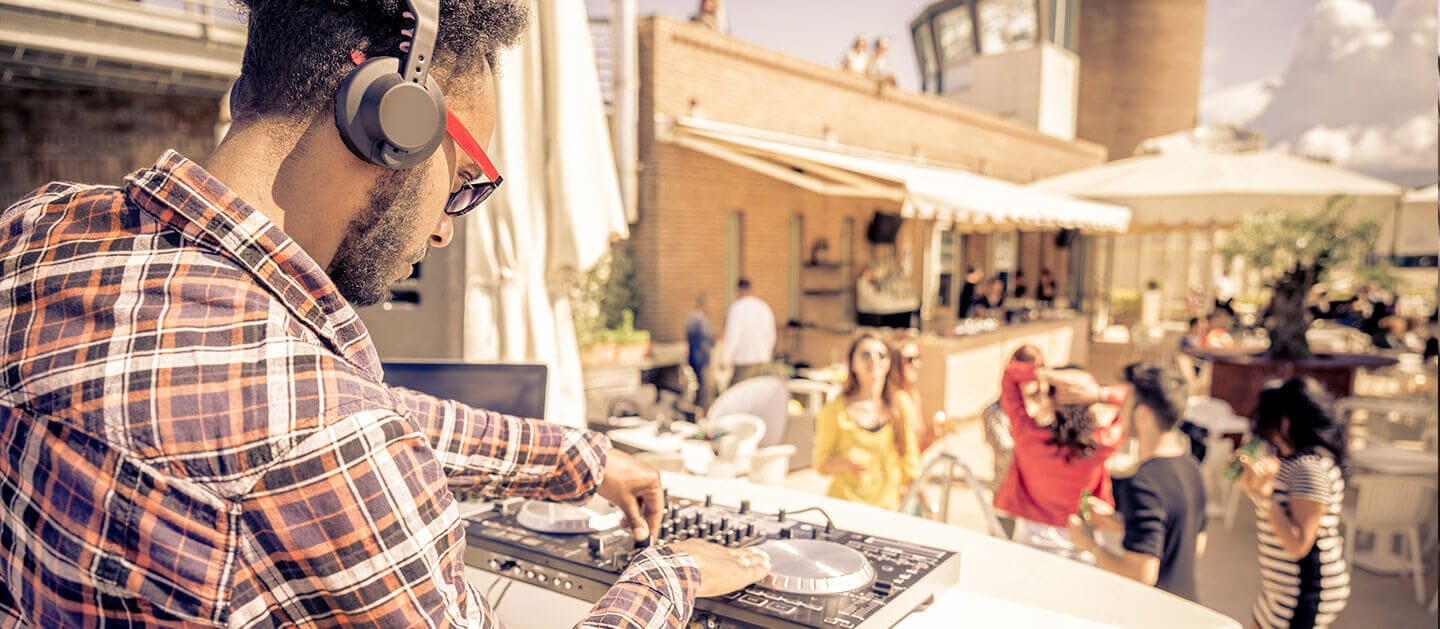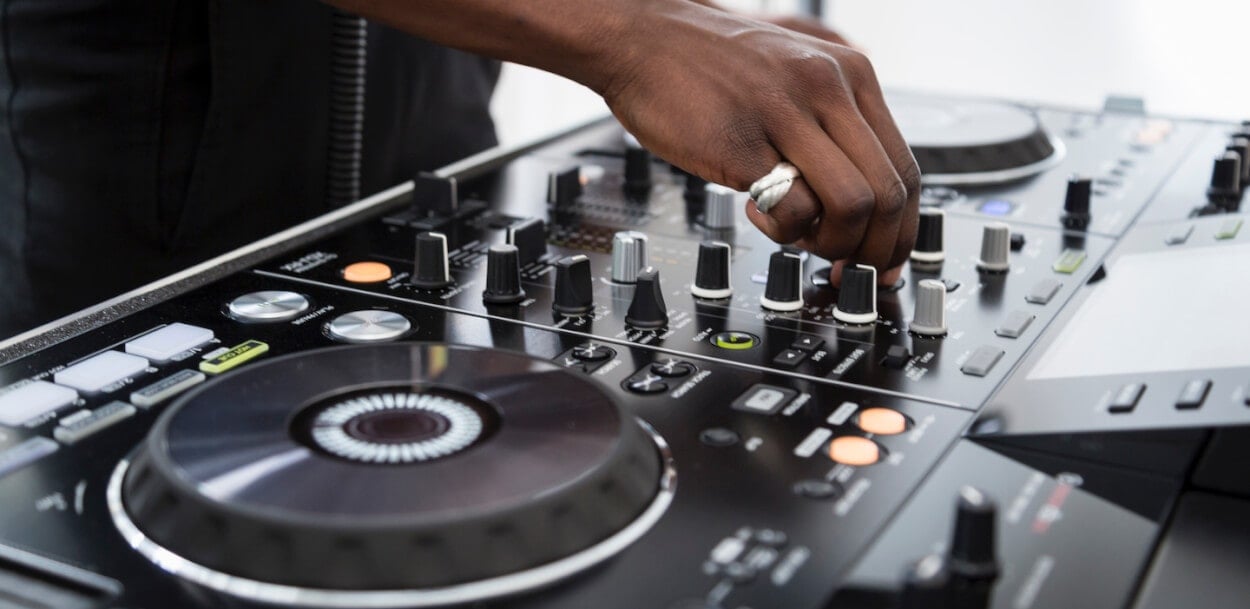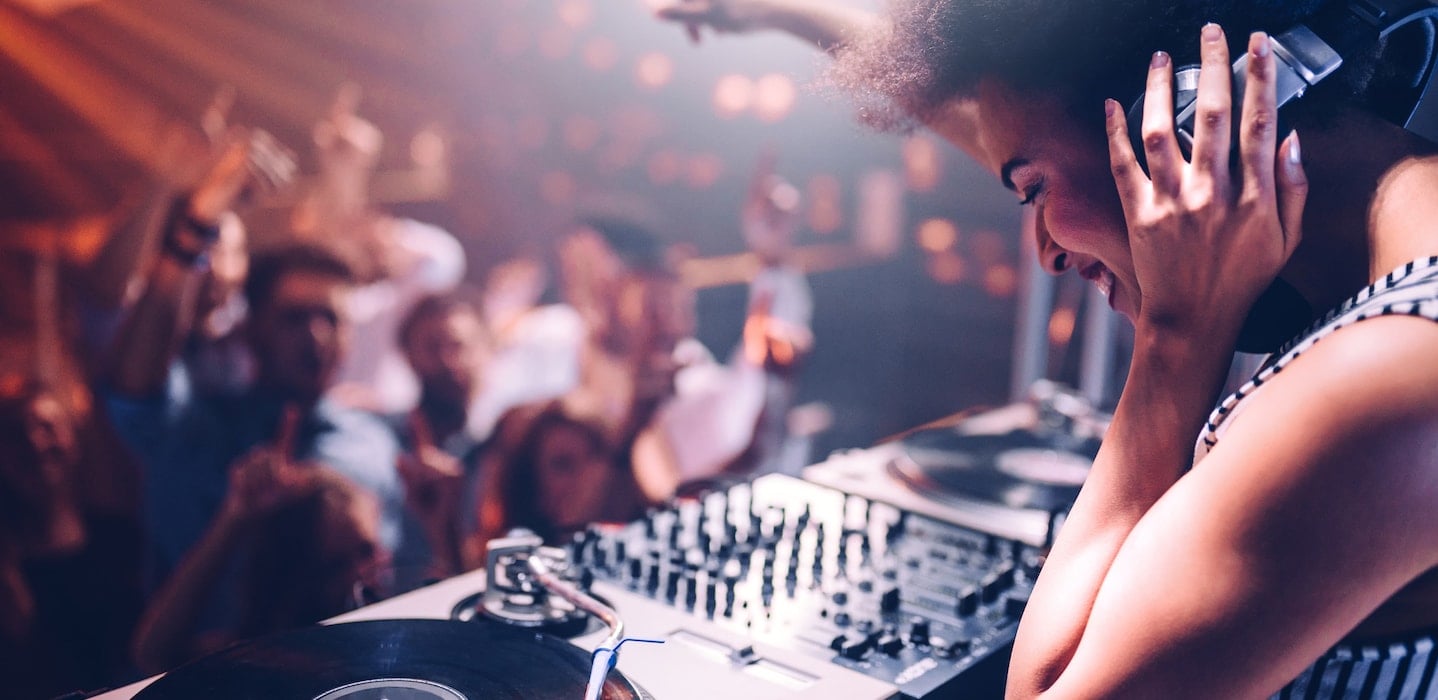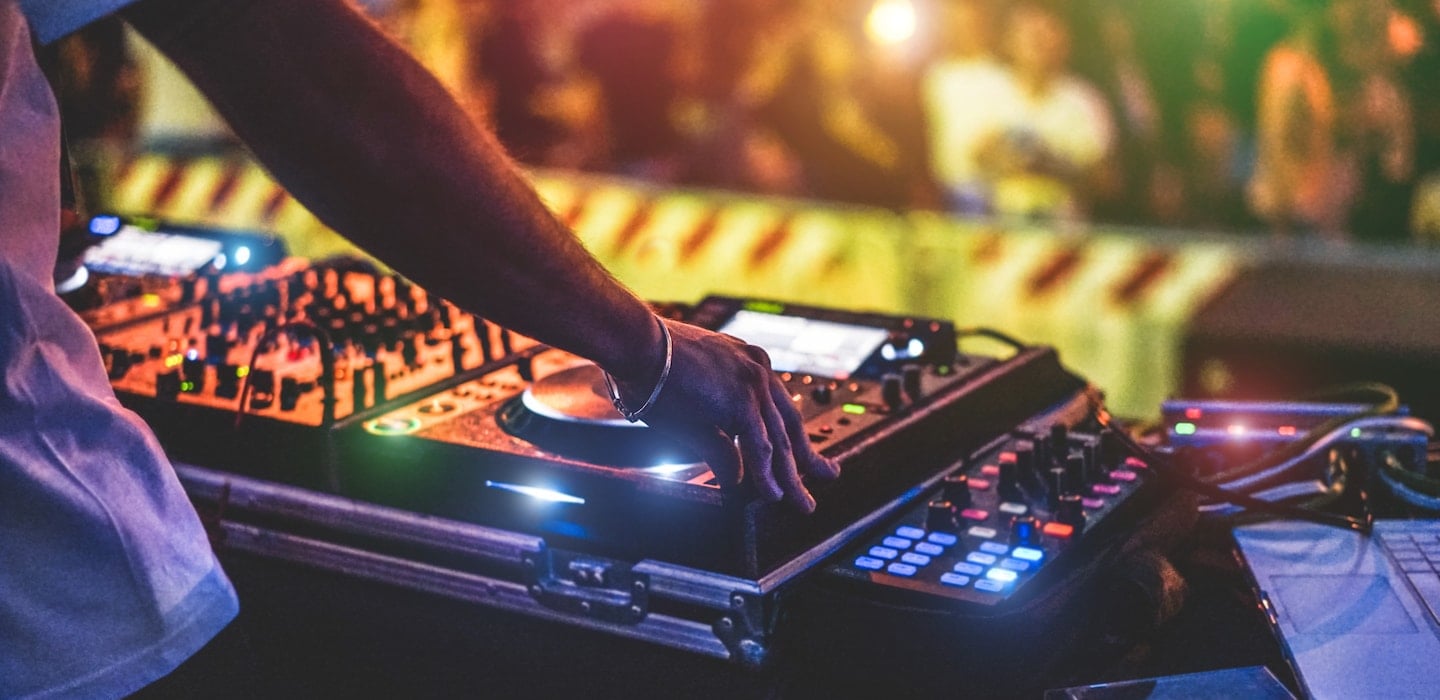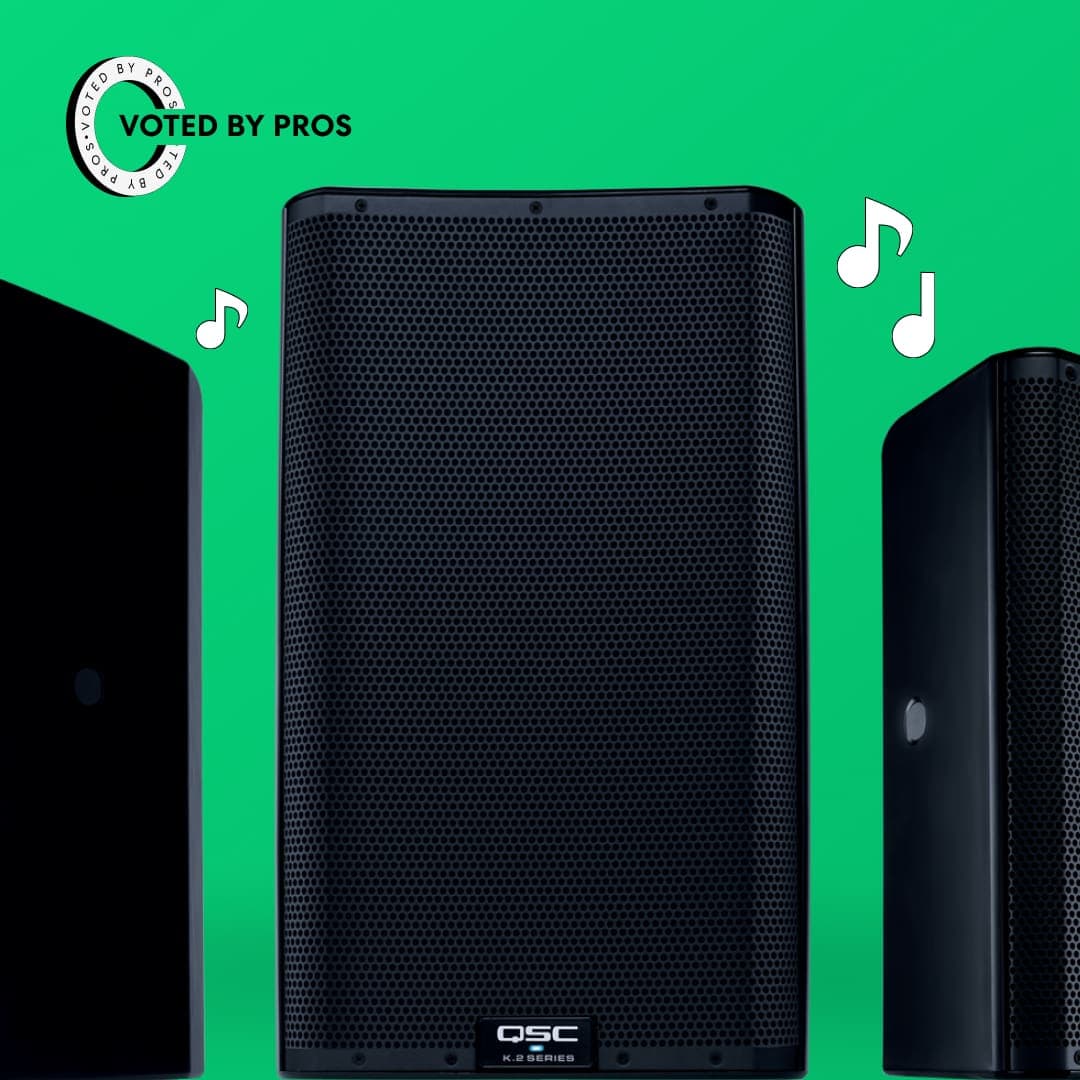As a DJ, you provide the soundtrack for days and nights to remember. Whether you come armed with an arsenal of vinyl or only your iPhone in hand, you play the perfect blend of throwbacks and popular new artists to keep people’s energy up throughout an event.
As you start to book gigs beyond friends’ basements, you may find yourself wondering, do I need a DJ license?
Unless you’re playing your own tracks, the answer is probably yes. Music is protected by copyright, and when you play it in public without an artist’s permission, you may be guilty of copyright infringement. Thus, this is your guide to protecting your DJ business from risk. Let’s do this.
Music copyright laws
As you consider your licensing needs, it’s important to understand music copyright laws and how they apply to DJs.
Copyright laws ensure that musicians are paid when other people distribute or sample their music. Remember Napster? The golden age of free music downloading software came to an end due to copyright infringement laws.
As a DJ, you aren’t selling bootleg CDs or MP3s. However, without a proper license for the music, you may be infringing on copyright when you play or sample certain songs without permission.
Sure, it’s unlikely that Beyoncé will find out about your performance at a block party and come knocking with a lawsuit. However, when playing other people’s music in public, you need a public performance license1. A few notes:
The price per license will vary based on how you plan to use the music (i.e. a license to play a song at a wedding is less than the license to play it in a film).
Do you own the CD or vinyl? That means you’ve purchased the right to listen to it on your own—but not to play it in public.
Worried about the cost of a license? If you’ve been booked by a venue that frequently plays music, they may already own the digital rights (or may be willing to cover the costs).
However, you may need to take out your own license.
Public performance license
A public performance license grants DJs specific permission to play an artists’ song (or use their beats) in public. In fact, it’s not just DJs who need this license—a retail store would also need permission to play a song. A public performance license also guarantees that the artists you’re playing receive royalties.
Three rights agencies grant these licenses:
• American Society of Composes, Authors, and Publishers (ASCAP)
• Broadcast Music, Inc. (BMI)
• Society of European Stage Authors and Composers (SESAC)
Contact these agencies to receive a public performance license before a DJ performance.
What about sampling and remixing?
What if you’re not playing other artists’ original tracks, but rather sampling, mixing, and chopping? Do you need a public performance license in this circumstance?
The short answer? It depends.
If you’re doing your remixing live (using a program like Native Instruments’s ‘Stems’), your live set is subject to different regulations, since it isn’t being distributed. However, should you upload the same remix to SoundCloud, the situation gets more complicated.
Now, you’re distributing samples of another artist’s music without the rights.
If the music is free, you may be safe under fair use laws—but if you’re charging for it, you’re definitely infringing on copyright. In this case, check with the same organizations (listed above) to obtain the proper rights.
Liability insurance for DJs
As you can see, laws around copyright can be tricky to navigate for DJs, especially when they’re playing live sets or releasing their own remixes. That’s why it’s wise to take out DJ insurance in addition to protecting yourself with a public performance license.
DJ insurance can provide coverage for the following kinds of claims:
Bodily injury
At your events, you interact with hundreds of people in dark, confined spaces. Should you accidentally injure someone, you could be held liable.
3rd party property damage
Should you accidentally knock over your DJ setup and damage someone else’s property, you could be held liable.
Legal fees
A client or third party could sue you to collect damages for bodily injury or property damage. Without insurance, you’d have to pay out of pocket.
Personal injury
Personal injury coverage includes accidental copyright infringement, libel, and slander. Should you accidentally play a song without the proper license, you could be held liable—but insurance could help you avoid a costly payout.
As you can see, general liability insurance can help to provide coverage against a wide range of risks you take on as a DJ. It’s important to do your best to understand copyright laws and take out the proper licenses. Yet, when it comes to protecting your small business, there are more risks—than just copyright infringement—you face every time you step on stage.
Small business insurance for DJs
Don’t let complicated music copyright laws take you off the airwaves. Just:
• Take out a public performance license when you’re DJing
• Take out general liability insurance to provide coverage against claims
At Thimble, our goal is to make insurance easy so that entrepreneurs like you can focus on what matters—growing your business.
Thimble’s general liability insurance is designed for the 21st century. As a DJ, you may work just a few times a month, so insurance might not seem worth it. That’s why we created on-demand insurance—take out a policy for the hour, day, or month. That means you can take out a policy for a single party, a weekend-long event, or by the month.
Want to say “yes” to a last-minute gig? With Thimble, getting insured takes less than 60 seconds. Just download the Thimble mobile app or click “Get a Quote,” enter a few quick details about your business, choose your desired coverage length, and you’ll receive an instant quote. If you’re happy with your rate, click to purchase.
You’ll receive a Certificate of Insurance that you can show to the venue right away.
This way, the music won’t stop. Instead, you can dance along with your audience knowing your small business is protected from physical and intellectual risk.





